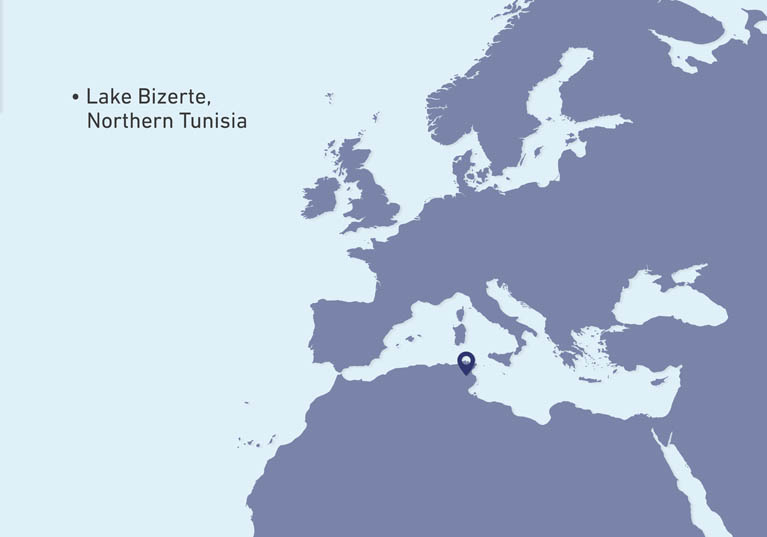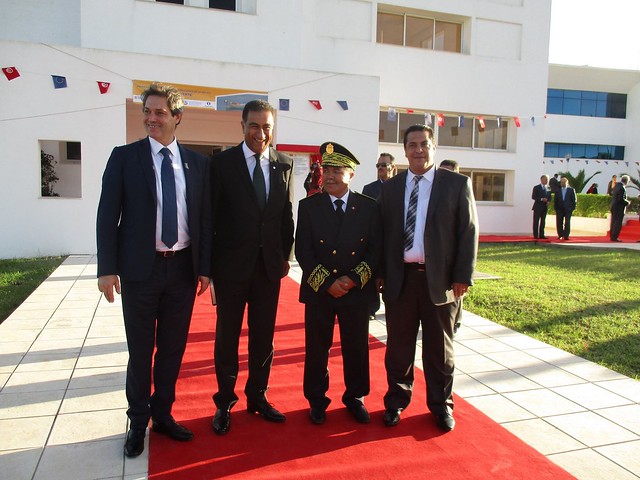
Integrated Programme for the Protection of Lake Bizerte against Pollution
Context and objectives
Over the course of a 5-year period, the project will contribute to the depollution of Lake Bizerte in northern Tunisia. It will also reduce indirect pollution impacting the Mediterranean Sea. The project takes an integrated approach, involving local stakeholders and investing in facilities to reduce waste and emissions around the lake.
Connected to the Mediterranean Sea and located close to nature reserves (Ichkeul Park and the Marine Protected Areas of Cap Blanc and Cap Serrat), this northern Tunisian lake is a known source of marine pollution. The depollution of the lake is therefore a top priority for the Tunisian government and the Euro-Mediterranean initiative Horizon 2020.
The project aims to eliminate the main sources of pollution of the lake and the bordering populations. This will guarantee a healthy environment and ensure economic activities such as agriculture, tourism, aquaculture and fishing are carried out sustainably. The project works mainly with industrial sites and urban areas, reducing, collecting and treating emissions, wastewater and solid waste. It provides technical assistance and facilitates the exchange of knowledge between local actors involved in environmental management.
The label delivered by the UfM in October 2013 recognises this as a flagship project that serves as an example for other promoters and institutions in the region. This label highlights in particular the high potential impact in pollution reduction and the exemplary dialogue put in place among actors. The UfM is working closely with the Tunisian Authorities on a cooperative method to secure environmental management of the lake involving stakeholders from public and private entities and NGOs.
Location

Key figures
Duration:
2016 – 2025
Beneficiaries:
400K
Total cost:
€ 90M
Countries:
1
Beneficiaries
400,000 inhabitants living close to the sources of pollution (531,000 in the entire Governorate).
More than 20 public and private companies.
Local NGOs.
Key actions
The project will focus on four priority areas of investment:
Industrial pollution: investments in the steel, cement and oil sectors to manage industrial pollution in compliance with Tunisian standards.
Urban wastewater: rehabilitation works will bring wastewater collection and treatment up to Tunisian standards.
Solid waste: remediation of landfills, securing of storage areas, and creation of a treatment plant and transfer centres in rural areas.
Coastal zone management: cleaning and landscaping the lakeshore and extending fishing harbours.
The investment component will be complemented by local-authority actions in the fields of environmental follow-up, governance, communication and awareness-raising.
Expected results
Improved sanitary and environmental conditions for an estimated 400,000 inhabitants living close to the sources of pollution (531,000 in the entire
Governorate).
Improved conditions for sustainable industrial production for three large state-owned companies, and more than 20 public and private companies.
Access to sanitation for 10,000 people in urban areas and 26,000 in rural areas.
Development of activities and local employment opportunities in the fields of sewage, waste management, fisheries and agriculture.
Increased knowledge among stakeholders as well as potential for initiatives from local NGOs.

